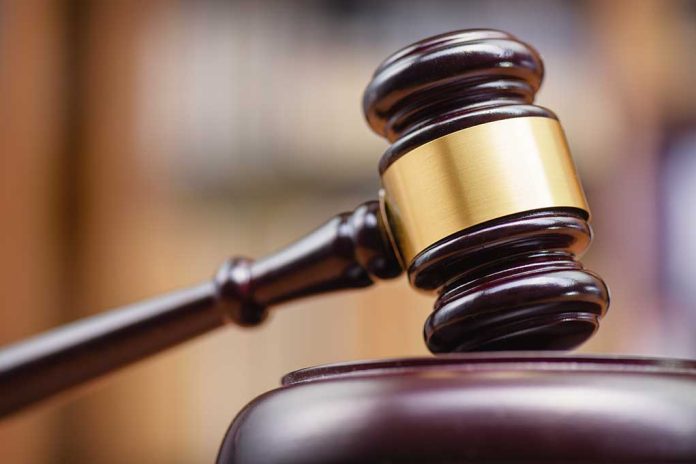
Massachusetts Judge Shelley Joseph faces a pivotal hearing as allegations of misconduct threaten her career, exposing potential cracks within the legal system’s approach to immigration enforcement.
Key Takeaways
- Judge Shelley Joseph allegedly enabled an illegal immigrant to escape ICE custody.
- The Massachusetts Commission on Judicial Conduct is scrutinizing her actions.
- A public hearing will be conducted to determine if Joseph can retain her position.
- The case underscores tensions between local judicial authority and federal immigration policy.
Allegations Against Judge Joseph
Shelley Joseph, a judge from the Boston Municipal Court, is under scrutiny for allegedly aiding Jose Medina-Perez, a twice-deported illegal immigrant, in eluding ICE agents. The incident took place in April 2018 at the Newton District Courthouse, where Perez exited via a side door, bypassing immigration authorities. Charges against Joseph were originally filed by former US Attorney Andrew Lelling but were dropped in 2022 after she committed to Massachusetts’ Commission on Judicial Conduct.
The commission’s scrutiny centers on claims of “willful judicial misconduct” and Joseph’s alleged failure to adhere to judicial disciplinary protocols. A significant point of contention involves whether she can convincingly defend her actions during the upcoming public review. Evidence will be presented on June 9 to decide if Joseph will maintain her judicial role.
Judicial Misconduct Details
The Massachusetts Commission on Judicial Conduct presented a comprehensive 112-page report accusing Judge Joseph of misconduct. Significant concerns include an alleged sidebar conference where ICE detainers were discussed and Joseph’s directive to disable courtroom recordings, both raising questions about her intent to cooperate fully with judicial authorities. Prosecutors argue that these actions illustrate a breach of the “code of judicial conduct.”
During the investigation, Medina-Perez was apprehended by ICE for immigration violations. Although the initial federal charges—conspiracy and obstruction of justice—against Joseph were abandoned after she submitted to the judicial conduct commission, the case underscores a broader debate concerning judicial authority and immigration enforcement.
A Massachusetts judge is facing a public hearing for helping a twice-deported illegal alien run from ICE by letting him out the back door in 2018.
Judge Shelley Joseph was charged with obstruction but charges were dropped, and her case moved to the Commission on Judicial Conduct pic.twitter.com/Wakx2q9YLd
— Mike Hawkins (@theHawk1947) May 1, 2025
Wider Implications and Recent Comparisons
Joseph’s case is not isolated. Similar issues emerge with Milwaukee Judge Hannah Dugan, recently arrested on comparable allegations, highlighting an ongoing clash between judicial responsibilities and immigration enforcement. Dugan’s legal representatives argue a misunderstanding, maintaining “that the court acted in unilateral fashion.” Both incidents demonstrate systemic dilemmas over the judiciary’s role in upholding or contesting federal immigration protocols.
As Judge Joseph awaits a June 9 hearing, the focus remains on whether the judicial codes align with broader legal and ethical standards in immigration contexts. Joseph’s approach to the allegations—and how judicial authorities address similar future incidents—may profoundly impact the judiciary’s engagement with immigration laws.
Sources:
- Boston judge could face brutal punishment for letting illegal migrant slip out of court to avoid ICE
- Boston judge set to face hearing for helping illegal migrant slip out of court to avoid ICE agents in 2018







